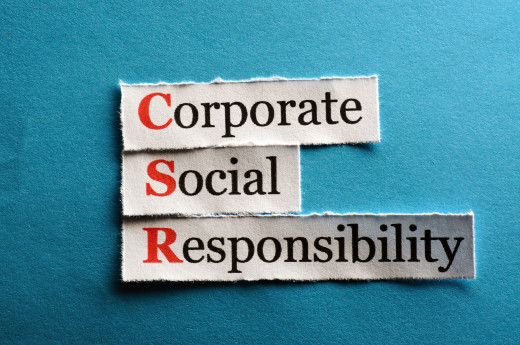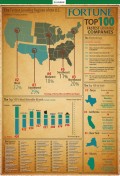Why Harvard Business School Promotes Corporate Social Responsibility?
Harvard Business School (HBS) advocates that corporate social responsibility (CSR) is critical to the long-term success of any corporation. Harvard Business School has been researching and teaching on the subject of CSR for some time, seeking to prepare future generations of business leaders with the fundamental understandings of the significant dividends gained by companies who invest their planning and resources in strong, strategically placed CSR initiatives.
In late September, HBS will host a three-day conference, “Corporate Responsibility: Strategies to Create Business and Social Value.” The program, part of HBS’s Social Enterprise Initiative, aims to provide the tools and information people and organizations need to create social value across industries: private, public and non-profit. The conference is designed for executives from major corporations who are responsible for managing corporate social responsibility initiatives. Participants will have a chance to learn with and share experiences with a broad spectrum of CEOs, senior executives and directors of CSR at non-profit and investor relations organizations, gaining invaluable information as well as research-based evaluation tools to measure the results of their CSR initiatives.
A strong team of faculty well versed in CSR will lead the sessions, including: Herman B. “Dutch” Leonard, Professor of Business Administration, Jane Nelson, Senior Fellow and Director of the Corporate Social Responsibility Initiative at Harvard University, John F. Kennedy School of Government, V. Kasturi Rangan, co-chair of HBS Social Enterprise Initiative and Michael Toffel, Assistant Professor of Business Administration.
HBS' conference is a testament to the now common understanding of the importance of corporate social responsibility to organizations both big and small. This however wasn't always the case.

Evolution of Corporate Social Responsibility
The term “corporate social responsibility” was introduced in 1953 in a publication titled, “Social Responsibility of Businessmen” which set out to answer the question: “what societal responsibilities does a business person bear?” At this time, additional publications began to be written on the subject and in the 60s it became more of a common belief that corporations definitely have a responsibility to society. Peter Drucker, a well-known management consultant wrote in 1984 that corporations must delve into societal problems and transform them into economic opportunities. This conversation continued throughout the 70s and 80s. Ben & Jerry’s, in 1989, was the first company to write a report on corporate social responsibility. Other companies followed suit in the 1990s.
Ben&Jerry's social mission compels them to use their company in innovative ways to make the world a better place.
Do you believe all companies have to implement "Social Responsibility" policies?
In a 2011 examination of CSR, it was noted that over the past 20 years corporations have moved away from merely reactive undertakings to raise visibility or reverse a negative image. Senior staff began to understand that by aligning their CSR agenda with their core values and corporate objectives, they could achieve much more without losing sight of their altruistic goals. Over time, and with a sweeping technological revolution which opened doors to an enormous global community, corporations were able see the expanded benefits of not only profitability and superior product, but also betterment of communities and the world. It became obvious that they could actually build a positive corporate image, thus achieving their original goal of financial success but in a more daring and proactive manner. Companies began to see a role for themselves in filling the vacuum created by the global financial crisis, to bring resolutions to societal problems in a way that would bring sustainable financial growth and profitability to the company.

Benefits of corporate social responsibility
Harvard’s research shows that among the many corporate benefits of CSR is the ability to acquire a unique advantage among its competitors. A strong CSR program enhances product loyalty, improves and spreads corporate image among a wider audience, attracts investors, many of whom are socially-conscious, and even improves the employee pool, attracting highly-skilled employees who are anxious to work with a company that cares about the world. In fact, with research demonstrating so clearly that there is a strong correlation between successful CSR initiatives and successful corporate bottom lines, investment companies have also become involved, launching socially responsible investment funds (SRI) that target businesses who have a strong history of engaging in CSR initiatives.
Successful companies are placing CSR at the core of their operations and make it an integral part of their strategic plan. Through the process of trying to change the world and bring happiness into the lives of others, that same happiness embeds itself in the hearts of employees and then it spreads to positive relationships with clients and customers.
Some companies set aside special days for community involvement, encouraging team leaders to identify projects and involve the team in the work with the payoff being not just to the communities served, but improved teamwork and communications among employees.
A further dividend is the new skills that employees gain through volunteer work, which enhances their performance in the office and gives them additional assets to contribute to their company. Employees gain a sense of pride and accomplishment through their efforts to improve lives, which oftentimes translates into increased volunteer activities outside of the office.
What is Corporate Social Responsibility (CSR)?

Corporate leadership training in comprehensive CSR planning
Recognizing the increasing influence of technologies that have facilitated real-time communications channels between business leaders, politicians, consumers, and advocates across continents, it is imperative that corporations operating on a global scale not be complacent. A strategic CSR plan has to focus on the broad and long-term gains for the business: how it can maintain and improve customer relations, employee performance, increase visibility in existing markets and, at the same time, be successful in the cause or specific social issue it delves into.
What is the biggest benefit of engaging in social responsibility?
The HBS conference is designed to give participants vital tools that will enable them to sharpen their approaches to corporate social responsibility, moving from the passive position of awareness to more aggressive actions. They will learn how to include CSR among the goals and objectives of their organization, of equal standing with strategic planning, budgeting, marketing, etc. Utilizing case studies, discussion and formal presentations, conference participants will examine the relationship between societal welfare and success of the organization. They will learn how to develop and implement a CSR campaign according to the needs of the company and shareholders. Hopefully, what it learned at the conference will be implemented at corporations worldwide, creating a ripple effect of benefits to humanity.
* Learn more about Harvard Business School's program
Since 1993, HBS faculty have researched and written over 800 social enterprise books, cases and teaching notes. Today, more than 90 faculty members engage in research projects, course development, and other activities. Research forums and conferences sponsored by the Social Enterprise Initiative have examined a wide range of topics.
Angela Chao and Harvard
- The Foremost Foundation | Home
My family's commitment to society - Angela Chao (AB 1995, MBA 2001) - Alumni - Harvard Business School
Harvard Business School alumni making a difference







